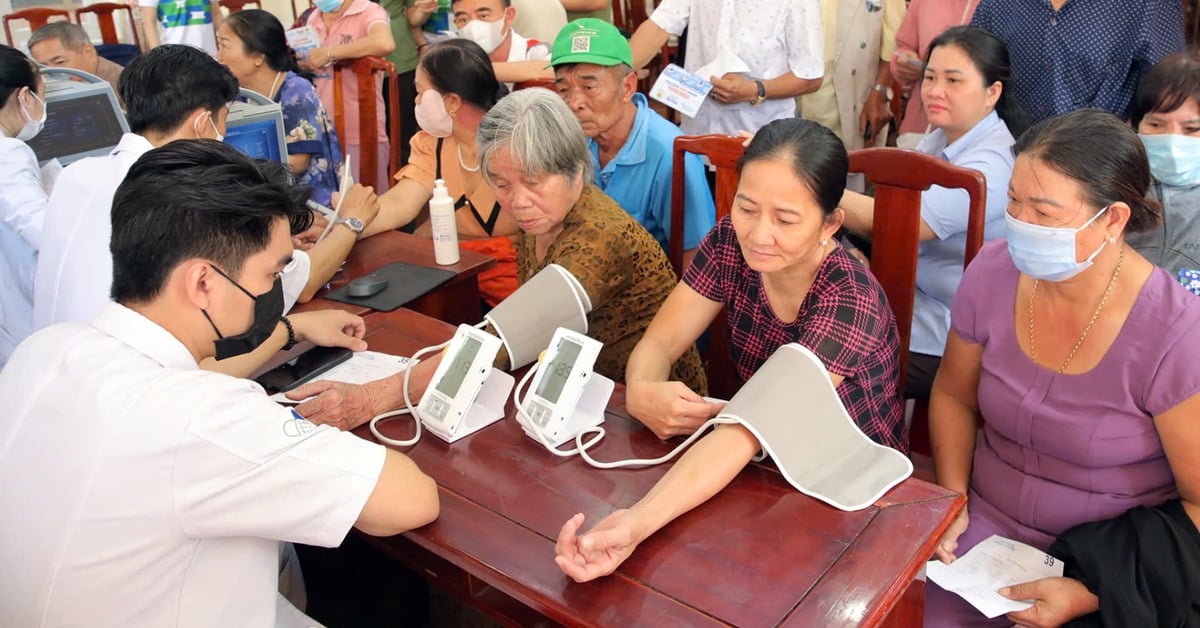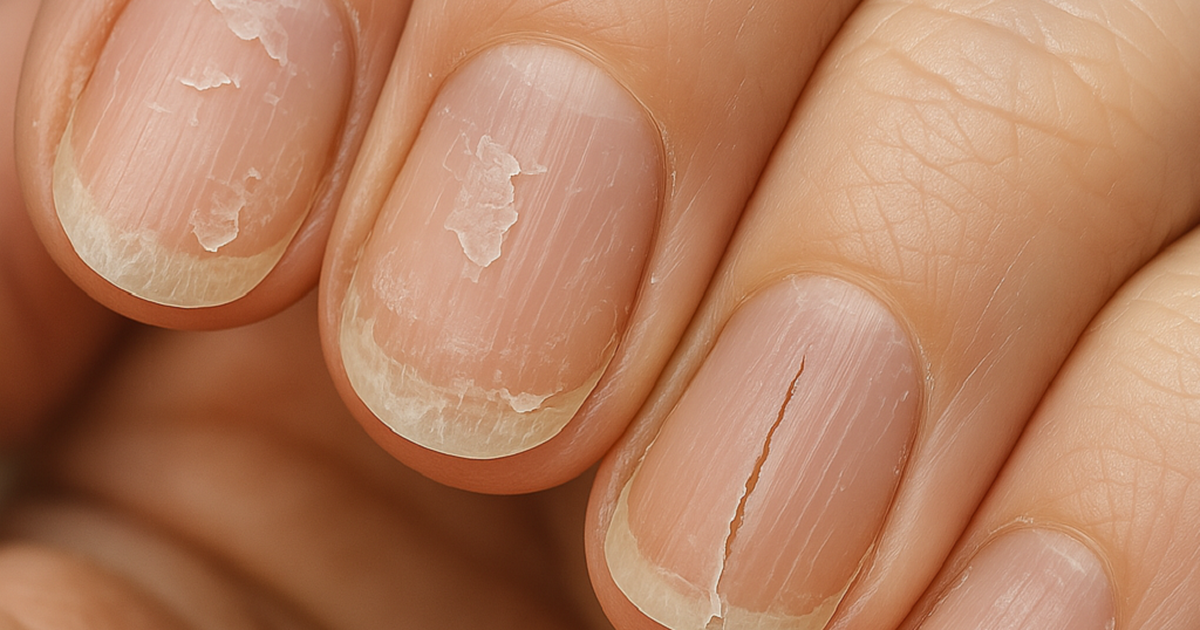Flu can progress to pneumonia, patients should drink plenty of water, eat nutritious food, avoid places with cigarette smoke, and rest to prevent complications.
Flu can progress to pneumonia, patients should drink plenty of water, eat nutritious food, avoid places with cigarette smoke, and rest to prevent complications.
Prevent complications of pneumonia caused by seasonal flu
The changing seasons and erratic weather create favorable conditions for bacteria and viruses to develop, including seasonal flu.
According to doctors, people with the flu only have symptoms of sneezing, runny nose, muscle aches... Young people with good health often have the flu not seriously, symptoms can go away after two weeks.
 |
| To prevent flu, it is recommended that people get vaccinated against seasonal flu to create an immune shield for the body, increasing the ability to fight against bacteria and viruses that cause disease. |
Children, the elderly, and people with weakened immune systems who get the flu can develop serious complications, including pneumonia. This is one of the most serious complications of the flu. Patients can develop pneumonia caused by the influenza virus or pneumonia caused by a bacterial infection.
Elderly people with chronic diseases who develop pneumonia after catching the flu can die if not treated promptly.
To prevent pneumonia when having the flu, as recommended, people need to avoid cigarette smoke because chemicals in cigarettes can weaken the immune system, reducing the body's ability to protect against disease-causing microorganisms.
Exposure to cigarette smoke increases levels of cytokines and pro-inflammatory immune cells such as neutrophils and macrophages, which can cause the immune system to overreact to the influenza virus.
Toxic substances in cigarette smoke also paralyze cilia cells, reducing the body's sensitivity to coughs that promote the elimination of influenza viruses.
This makes people with influenza more likely to have prolonged pneumonia and greater lung tissue damage than non-smokers. People with chronic obstructive pulmonary disease (COPD) who are infected with influenza can have their condition worsened.
Smokers with influenza are 1.5 times more likely to be hospitalized and 2.2 times more likely to need intensive care than people who have never smoked.
Not drinking alcohol helps limit damage to the lung immune system, which has the function of consuming and eliminating viruses and bacteria such as alveolar macrophages and phagocytic cells. This habit also increases dehydration, hinders immune function, and triggers inflammatory reactions.
Maintain personal hygiene such as washing hands regularly with soap after coughing, blowing your nose, going to the toilet, before eating or preparing food... to limit the spread of other viruses and bacteria. Clean your ears, nose and throat with warm saline to help soften mucus and reduce nasal congestion.
Avoid damaging the nose because if the nose is damaged, it will create an opportunity for viruses and bacteria to enter and cause inflammation. Clean your mouth to prevent pathogens from entering through the nose and throat.
Take a quick shower with warm water in a sheltered place, then dry your body quickly and gently to help relax, reduce fatigue, reduce phlegm in the throat, clear the nose, and make breathing easier.
Drink plenty of warm filtered water to avoid dehydration, help the body detoxify, increase lymph production, and improve the respiratory immune system. Patients will have reduced coughs, soothe sore throats, and increase the ability to prevent pathogens from entering the body, which can easily lead to infection.
Patients can drink electrolyte water, thin porridge, fruit and vegetable juice, low-sugar smoothies, ginger water, honey and lemon. On average, adults need to supplement about 1.5-2 liters of water from drinks and food.
Avoid contact with sick people or crowded places, wear a mask, keep your neck warm with a scarf when going out to avoid spreading the disease to the community, and prevent infection that can lead to pneumonia.
Eat a nutritious diet, prioritize green vegetables, foods rich in vitamin C and zinc to improve immunity and increase resistance.
Limit spicy, sugary or fatty foods. Symptoms can make the patient tired and lose appetite. Divide meals into many meals a day, increase liquid, easy-to-digest foods such as porridge, soup... to help the body recover quickly.
Regular exercise speeds recovery time if you get the flu and reduces the risk of complications like pneumonia.
Physical activity increases the concentration and activity of white blood cells, improving immune responses. The body reduces oxidative stress levels, thereby reducing the risk of inflammatory damage in the lungs.
Maintain this habit regularly to improve blood circulation, bringing oxygen to damaged lung tissue. Respiratory muscle strength is enhanced, lung function is improved, reducing the risk of complications such as pneumonia. Exercise also reduces the risk of certain diseases such as diabetes, high blood pressure, obesity.
Get adequate rest to give your body time to recover, avoid overworking or overexerting yourself. Patients need to ensure they get enough sleep and stay relaxed to strengthen their immune system.
Vaccination creates an immune shield for the body
To prevent influenza and complications caused by seasonal flu as recommended, people need to get vaccinated against seasonal flu to create an immune shield for the body, increasing the ability to fight against bacteria and viruses that cause disease. Keep your living space clean, pay attention to controlling the temperature and humidity in the room appropriately.
In addition, it is necessary to control underlying diseases well. People with obesity, diabetes, asthma, chronic obstructive pulmonary disease (COPD), and heart disease need to control their underlying diseases. Because this group has a higher risk of developing pneumonia after having the flu than normal people.
Flu can progress to pneumonia about 7-10 days after the onset of flu symptoms. If you have a persistent fever, fatigue, muscle weakness, difficulty breathing, severe or stabbing chest pain, rapid heartbeat, blue lips and fingernails... you should see a doctor soon.
According to Dr. Nguyen Thi An, Safpo/Potec Vaccination System, seasonal flu is usually benign but in some cases can progress to severe symptoms such as high fever, difficulty breathing, pulmonary edema due to heart failure, and can even cause death.
According to experts, anyone can get the flu, but it is most common in people with an incomplete immune system or weak resistance, such as infants: Infants under 6 months of age who have not been vaccinated against the flu are at very high risk of getting the flu.
For babies born prematurely (under 32 weeks old) with health risks are more likely to get the flu and have more severe symptoms.
Children, especially children under 2 years old with incomplete immune systems, are at high risk of infectious diseases, including seasonal flu.
For children with underlying medical conditions such as asthma, metabolic disorders, congenital heart disease, liver disease, kidney disease, etc., the risk of influenza and complications is especially high, so children are always recommended to be fully vaccinated against influenza and get a booster shot once a year.
Adults >65 years old; people with chronic underlying diseases such as diabetes, heart and lung disease, kidney or liver failure, immunodeficiency... are susceptible to serious complications when infected with the flu.
Pregnant or breastfeeding women also need to pay special attention to avoid getting the flu because it can greatly affect their health.
Accordingly, during pregnancy, a woman's body undergoes many changes, hormones change, and the immune system becomes weaker, causing their resistance to decrease.
This makes the pregnant woman's body more sensitive and vulnerable to pathogens. Similarly, after giving birth, a woman's physical health and resistance are reduced, making it easier for the flu virus to attack.
Therefore, people over 50 years old, immunocompromised, with underlying diseases, diabetes, high blood pressure, COPD, children... should get vaccinated every year.
Regarding the question of why seasonal flu vaccination is needed every year, according to doctors, seasonal flu is caused by influenza viruses (usually 4 strains from H1N1, H3N2 and 2 group B strains) and it spreads in the community with the ability to continuously change antigens (we will often be exposed to new flu viruses) but according to certain genetic rules. Because each year, the circulating flu virus strains are different, we need to get a booster shot for seasonal flu every year (once a year).
The World Health Organization (WHO) has long established seasonal influenza virus monitoring stations around the world (including in Vietnam) to isolate and identify seasonal influenza viruses circulating in regions (geographical regions, climates, Northern and Southern hemispheres, etc.).
From there, predict and determine the influenza virus strain that will appear in the winter-spring season in the Northern Hemisphere (from October to the end of April next year) and in the winter-spring season in the Southern Hemisphere (from May to October every year).
From determining which influenza virus strains are likely to prevail where (Northern and Southern Hemispheres), WHO will provide guidelines on influenza virus strains for the production of seasonal influenza vaccines for vaccine manufacturers to follow and supply to the market at the best time (Northern Hemisphere is around August-September, and Southern Hemisphere is around April-May every year).
That is why we living in Vietnam need to get a seasonal flu vaccine once a year and before the flu season starts as well as getting the recommended seasonal vaccine.
Because Vietnam is located in the tropical monsoon region, the flu season in the North and the South may differ slightly in time, but because we are located entirely in the Northern Hemisphere and according to WHO recommendations, we should get the correct Northern Hemisphere seasonal vaccine, which covers from this winter to the end of next spring.
Source: https://baodautu.vn/cum-mua-va-bien-chung-viem-phoi-d228996.html




![[Photo] Visiting Cu Chi Tunnels - a heroic underground feat](https://vstatic.vietnam.vn/vietnam/resource/IMAGE/2025/4/8/06cb489403514b878768dd7262daba0b)
























































































Comment (0)